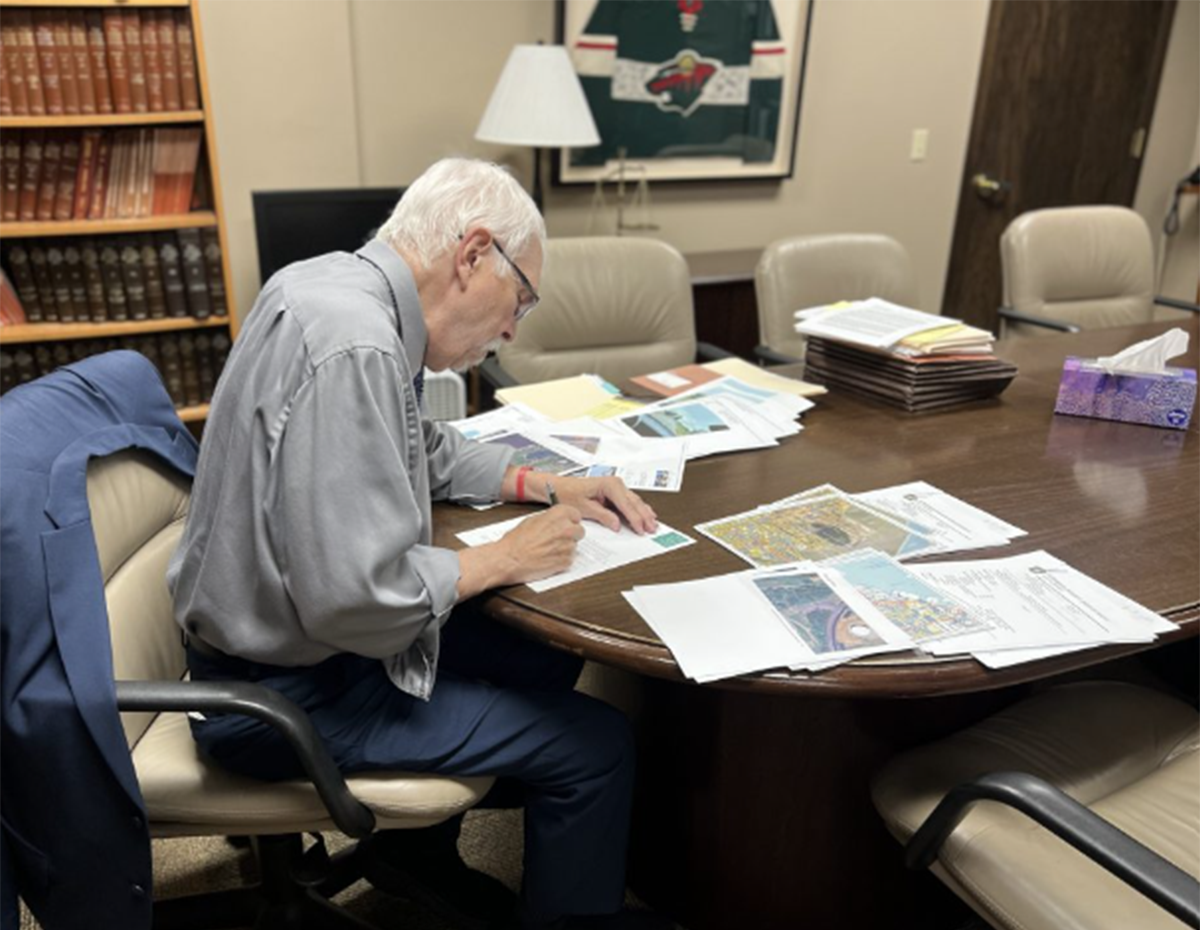With Veteran’s Day on Monday, a UW-Eau Claire professor and a team of students are working to combat the negative reputation of older people.
They are conducting an oral history project in which nursing students interview World War II veterans and assess the effect of reminiscing on their mental health.
Lois Taft, associate professor of nursing systems and research team leader, created the project titled “Oral History Project: Memories of World War II.” Her research team consists of three nursing students and one business student.
Since the spring of 2001, the students interviewed 26 older adults in the Eau Claire area about their memories of WWII and examined the potential benefits of reminisces on their mental health, Taft said.
“The main value of this study is to appreciate the value of reminiscing and the sharing of elders history,” Taft said. “We are working to dispel against attitudes and stereotypes of the older adults. Instead, we can appreciate them and not just see them as old.”
One problem Taft and her team encountered was finding enough adults who were involved in WWII and are healthy enough to participate, Taft said.
Participants were drawn from nursing homes and church parishes in the Eau Claire area. Taft asked the adults for permission to be interviewed by students. They then were required to sign an informed consent waiver.
Students asked participants a series of questions that were answered orally, Taft said. The questions began with, “Tell me about the day you heard that the Japanese bombed Pearl Harbor?”
They progressed to ask, “What was life like before then and how did your life change?” And, “Do you have any advice for the younger generation?”
One older female participant offered some advice to offer.
“We need to educate ourselves and to not take at face value everything we hear,” the woman told Taft. “It’s hard to sort out the truth.”
The project received funding for two more years from the UW-Eau Claire Center of Excellence for Faculty and Student Research Collaboration, Taft said.
She said she believes the project will serve as a bridge between the old and young adults. Taft said a majority of the younger generation doesn’t relate to the older, and it’s due to a lack of communicaion between the two.
“This is a wonderful project for students,” she said. “It gives them opportunity to learn not only how to interview and conduct research, it also gives students a chance to get to know an older generation.”
Senior nursing major Jennifer Platt is one of the research team students.
She first became interested in doing research as a freshman. Platt said she joined Taft in her research as a sophomore three years ago.
Platt attributes several areas of personal growth as a result of working with the older adults.
“I learned how to communicate better with older people, as well as appreciate their knowledge,” Platt said. “If I hadn’t done this study, I wouldn’t have realized how much wisdom they have to offer.”
The next step in the research project is to interview nurses involved with WWII and the effect reminisces have on their mental health, Taft said.
As she and the students wrap up the research involving older adults, they hope to promote their goal of changing negative perceptions into positive ones, Taft said.
“We are helping people to leave a legacy and have society value that legacy.”






